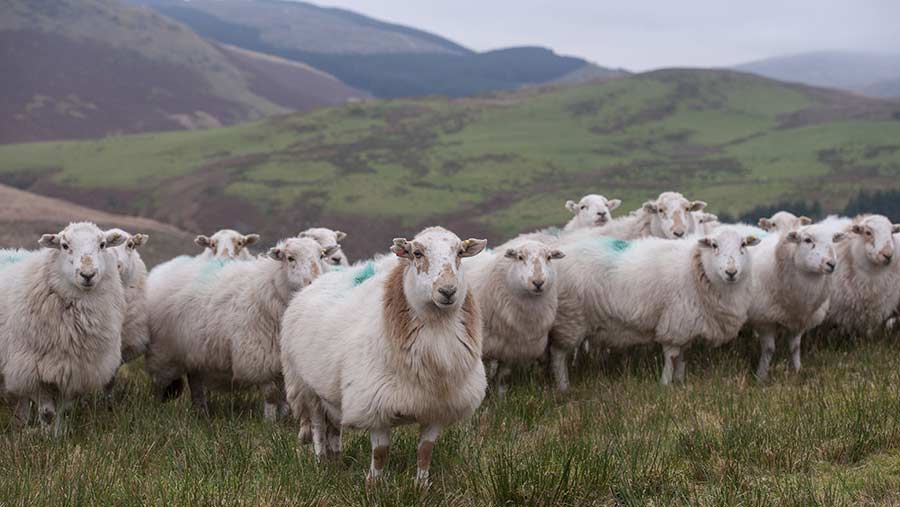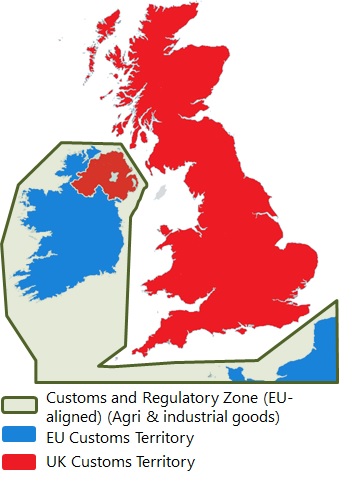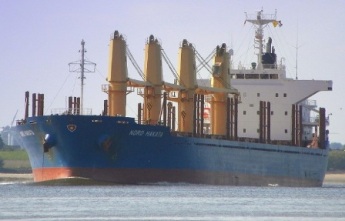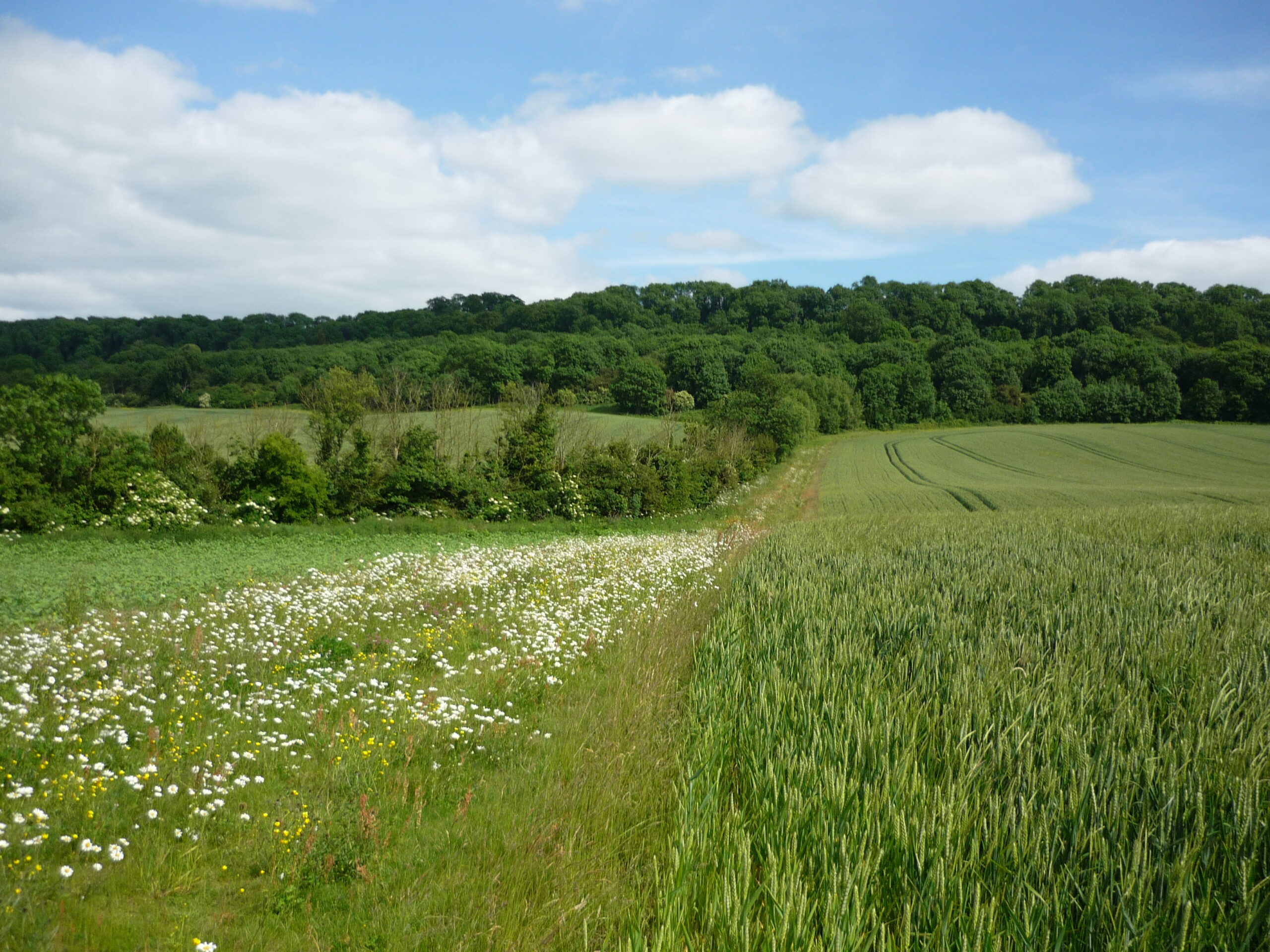The British Retail Consortium (BRC) has estimated that, under a No-Deal Brexit, the cost of importing food and drinks products to the UK would increase by £3.1bn. This equates to £112 per year per household. The analysis only focuses on the effect of tariffs, and does not include extra non-tariff costs, meaning the final figure would be significantly higher.
Category: Policy & Business
Welsh Schemes Update
Further to the Welsh Government’s announcement of £106m worth of funding (see earlier article, Welsh Funding), a number of dates for expressions of interest (EOIs) have now been announced:
- The Farm Business Grant scheme will open from 9th November to 18th December 2020 and 18th May to 25th June 2021 for grants towards yard coverings; no further details are currently available. The Farm Business Grant is expected to open between 1st March and 9th April 2021 for other items.
- The Sustainable Production Grant will open between 1st February and 12th March 2021 for EOIs.
- The Timber Investment Scheme will open for another round of EOIs between 1st March and 9th April 2021.
- The Co-operation and Supply Chain Development Scheme – (Pilot Actions for Community Cohesion and Green Recovery) will be available from 30th September to 29th October 2020 to submit EOIs.
- EOIs for Food Business Investment Scheme will be available from 1st October to 29th October 2020.
More scheme details and EOI documents are expected to be available shortly via the Welsh Government website at https://gov.wales/rural-grants-payments

New Covid Support
The Chancellor, Rishi Sunak, has announced a further package of measures to support employment as the original ‘Furlough’ scheme starts to be phased-out. This comes against a background of a resurgence in cases of Covid-19 across the UK and a reversal of the easing of the lockdown restrictions.
Dubbed the ‘Winter Economy Plan’, the centrepiece of the package is a new Jobs Support Scheme (JSS) to top-up the wages of those who are working reduced hours. Unlike the previous Furlough scheme, the idea is to focus on viable jobs, but where demand may have temporarily dropped, rather than supporting all pre-Covid jobs. The scheme starts on the 1st November (when Furlough ends) and precise rules are still being worked on. In broad terms, employees must work at least a third of their normal hours, which employers will pay for at the usual rates. For any reduced hours, the cost of these will be split three ways between the employee, the employer and the Government. Effectively the employee gets paid two-thirds of their salary for the hours they are not working. There is a cap of £697.92 per month.
The JSS is designed to run for 6 months, and can be claimed along with the previously announced Jobs Retention Bonus. The new scheme is open to all employers, even those that have not used the Furlough scheme in the past. Large businesses will have to undergo a financial assessment to ensure they have been affected by the downturn.
Other elements of the package include;
- extending the Self Employed Income Support Scheme (SIESS). This will see a lump-sum grant paid for the period from Nov through to the end of January to those eligible for the current SEISS who are continuing to actively trade but face reduced demand. This is worth 20% of average monthly profits, up to a total of £1,875. There could be a further round, depending on economic circumstances, for the period Feb 2021 to April 2021.
- the temporary VAT cut for tourism and hospitality businesses will be extended to 31st March 2021.
- those businesses that have deferred their VAT payments will not have to pay it in full in a lump sum at the end March 2021 but will be able to make 11 smaller interest-free payments during the 2021-22 financial year.
- self-assessed taxpayers who deferred their Income Tax payments in July 2020 will not need to pay these until January 2022. This delay also applies to payment due in January 2021.
- businesses who have taken out Bounce Back Loans and the Coronavirus Business Interruption Loans (CBILs) will also have more time to pay them back. The terms of the loans can be extended from six years to ten, with payment holidays and interest-only periods on offer.
Full details of the measures can be found at – https://www.gov.uk/government/news/chancellor-outlines-winter-economy-plan
It has also been announced that there will be no Autumn Budget this year. The Government believes that the fiscal situation is so uncertain, that any decisions made could quickly be overtaken by events. The Comprehensive Spending Review (CSR) is still expected to report this autumn. However, its timeframe may be cut from the usual three years to just one year of funding commitments. Whether this affects any of the announcements on future farm support policies, especially in England, is unclear (see previous article).

Brexit Update
As has so often been the case with the Brexit process, it has been yet another tumultuous month in the UK-EU negotiations. Whilst the Future Relationship negotiations have continued to get bogged down over the summer months, it was the admission by the Northern Irish Secretary (Brandon Lewis) that the UK Internal Market (UKIM) legislation currently working its way through Parliament would break international law that sparked the most controversy. Not just with respect to the EU but also in terms of the prospect of a trade deal with the US. Whilst the prospects of a No Deal scenario with the EU have increased, there are signs to suggest that progress continues to be made towards a Deal.
UKIM Legislation Flashpoint
The key flashpoint with respect to the UKIM legislation is the provision for the NI Secretary to disapply parts of the Northern Ireland Protocol (which was agreed in conjunction with the EU Withdrawal Agreement). This relates to NI to GB trade and the reach of EU State Aid rules if the UK and the EU did not come to a satisfactory agreement.
From the UK side, given its promise of ‘unfettered access’ for NI businesses into the GB market, it objects to the prospect of NI businesses having to complete Safety and Security (Exit) Declarations on shipments into GB. However, the bigger issue is the potential reach of EU State Aid rules to affect companies operating in GB that have subsidiaries in Northern Ireland. The EU interpretation of the Withdrawal Agreement suggests that such companies, even if NI subsidiaries are small, would have to apply EU State Aid limits. The UK objects to this and wants to have the freedom to operate an independent State Aid regime from January. The UK Government has also claimed that the EU has threatened to withhold the granting of third country approval for GB and British companies wishing to export into the EU post-Brexit.
All of this political rancour has eroded trust and caused significant damage. That said, if one pays attention to the mood music concerning the Joint Committee which oversees the implementation of the Withdrawal Agreement, including the NI Protocol, then progress is being made. Some believe that these discussions could result in the need for Exit Declarations being waived, overcoming one of the key issues concerning the UKIM legislation. Most trade experts also agree that the UK will be granted third country status so that firms can continue exporting into the EU, as it granted such status to the UK previously on a temporary basis when the prospects of a No Deal loomed before. There is also evidence to suggest that progress is being made on the border arrangements required to manage trade from GB into Northern Ireland, although doubts remain as to whether that will be ready on time.
Future Relationship Talks
The State Aid issue is more problematic and remains a key stumbling block in the UK-EU negotiations. Of course, a State Aid agreement as part of a wider UK-EU trade deal would address the difficulties caused by the UKIM legislation, but that still seems a long way off. Although there appears to have been some progress in resolving the issues around fisheries, the level-playing-field difficulties persist. This, of course, will have a major bearing on agri-food in terms of the extent to which UK exports could access the EU market but also in terms of the standards that the UK would accept on imports from elsewhere.
Given that there are now just 98 days until the Transition Period ends, the prospects of a comprehensive Free Trade Agreement (FTA) between the UK and the EU are diminishing. Instead, the prospects have increased of a more basic FTA that would have zero tariffs and zero quotas on goods (including agriculture) but would offer little in the way of reducing non-tariff barriers (e.g. SPS checks) or dealing with services. However, to achieve this agreement the EU is still pushing for the UK to adopt a ‘shared philosophy’ on State Aid and to have a robust mechanism to deal with disputes (which is a relaxation of its stance on European Court of Justice (ECJ) oversight) as well as solid enforcement of domestic regulations. These latter issue have arguably become even more important in the EU’s eyes given the UKIM legislation introduced by the UK Government.
So, although the outline of a ‘landing zone’ is beginning to take shape, it remains to be seen whether the UK Government will agree to this. It is proposing an entirely independent State Aid regime based on WTO principles concerning such supports. It also wants to pursue its own trade deals, which as the accompanying article shows, would have significant implications for UK agriculture.
All the while, the UK is also trying to implement plans to manage cross-border traffic from January. It has recently introduced the concept of a ‘Kent Access Permit’ which hauliers would require before being admitted to travel towards Dover and the Continent. This is in a bid to reduce congestion as some estimates have suggested potential tailbacks of 7,000 trucks which would cause major disruption. All of this highlights just how much work still needs to be done in the months ahead. As reported previously, it is increasingly obvious that businesses need more time to operationalise all of these requirements, particularly if key pieces of infrastructure (e.g. Smart Freight System) are not going to be ready on-time. Whilst the Transition Period will end in December, one person’s Transition Period extension can be another’s Implementation Period if managed correctly. Such a period of at least 6 months is needed and is often a feature of other FTAs.

Free Trade Agreements Update
Although the UK-EU negotiations dominate the trade landscape, the UK is undertaking several other negotiations with non-EU countries which arguably could have as great an impact on the British food and farming sector.
UK-Japan Trade Agreement ‘In Principle’
On 11th September, the UK Government announced that it had secured a free trade deal with Japan; its first as a newly-independent trading nation. Whilst a key achievement, it is noteworthy that the deal has only been agreed ‘in principle’ and a full text is anticipated in October. Furthermore, whilst additional access was granted, it largely replicates the provisions of the EU-Japan trade deal.
Although it is difficult to tell precisely what benefits such an agreement will bring until the full text becomes available, the UK Government is keen to highlight increased market access for products such as Stilton, it also claimed increased opportunities to export products such as malt (Japan is already the leading export market for UK malt). Furthermore, significant tariff reductions in terms of pork and beef were also cited and this could certainly create some niche export opportunities. The other significant gain highlighted by the UK was Japan’s agreement to recognise 70 Geographic Indicators (GIs), it currently recognises just seven.
So, there have been some gains from a UK perspective but these are minimal when compared with Britain’s current trade with the EU. It is also likely that part of the reason why the full text has not been published yet is that Japan is keen to ensure that its supply-chains are protected under a UK-EU trade deal, so that cars produced in Japanese-owned manufacturing plants in Britain can continue to enjoy good access to EU markets and would not be subject to arduous Rules of Origin requirements.
UK-US Trade Talks
The fourth negotiating round was completed recently and talks have now progressed towards dealing with more substantive issues such as Sanitary and Phyto-sanitary (SPS) regulations. But a trade agreement is still some way off and will not be happening before the US election on 3rd November. This is significant, particularly because if the Democrats’ candidate (Joe Biden) wins the election, any UK-US trade agreement would be heavily contingent on the UK upholding its commitments arising from the Good Friday Agreement (GFA). Here, the proposed UKIM legislation is perceived by influential voices on Capitol Hill as contravening the UK’s commitments under the GFA. Without a trade agreement with the US, the UK’s ‘Global Britain’ aspirations will be severely deflated.
Another negotiating round is anticipated mid-to-late October and it is likely to be next year at the earliest before a full trade deal is negotiated.
Australia and New Zealand Talks
These are also continuing to progress with second negotiating round with Australia commencing on 21st September. Arguably, a trade agreement with these countries could have a bigger impact on UK farming than a US deal; particularly given the significance of these countries’ beef and sheep exports and dairy exports in the case of New Zealand.
The Department for International Trade has already acknowledged that achieving greater access to the UK market for agricultural produce is a key focus for both Australia and New Zealand and this will mean that the UK will need to offer concessions. This, in turn, means greater competition for British farmers and the DIT’s analysis for the Australian FTA concedes that in the longer term output from UK agriculture and food processing would decline (DIT’s analysis for New Zealand contains similar projections). Therefore, these negotiations need to be closely watched.
Roll-Over Agreements
The final issue is ‘roll-over agreements’. These are deals ensuring continuity of trade under previous FTAs signed by the EU when the UK was a Member State – 40 FTAs covering 70 territories. These are continuing to progress, with the UK concluding 19 agreements covering 50 territories. This includes Switzerland, Chile, South Korea and Israel. Another 18 are being negotiated including with Canada, Mexico, Turkey, Ukraine, Egypt and Vietnam. An agreement with Canada is anticipated in October and similar to the CETA agreement with the EU is likely to result in increased access for Canadian beef in the UK market. Otherwise, these roll-over agreements shouldn’t affect agricultural markets very much as they are all about maintaining the status quo for the UK in trade terms.

Higher Level Stewardship
HLS agreements due to expire in 2021 could be offered a one-year extension. Natural England (NE) will initially carry out an assessment to see if the current agreement is suitable for an extension. If it is, NE will contact the Agreement holder to make sure the contract is still meeting the rules an continues to provide the right outcomes; this may involve a site visit. Those who do not wish to extend can inform NE, and they are then able to apply under Countryside Stewardship.
If the current agreement meets all the extension criteria, a recommendation will be made to the RPA; these should be completed by December 2020. The RPA will make the final decision as to whether to extend the agreement. If found suitable, an Extension Offer will be sent, this will not include any incomplete capital works and will be amended if some of the original options are ineligible to extend; agreement holders are therefore advised to read the new offers carefully. Acceptance declarations and supporting evidence will need to be returned to RPA by the date shown in the covering letter, this is usually only 20 days though.
HLS agreements that commenced in 2009 and 2010 and have already been extended once or more will also be offered a further one year extension provided they continue to meet the criteria. Further information can be found on the GOV.UK website via https://www.gov.uk/guidance/higher-level-stewardship-hls-2021-agreement-extension

John Nix Pocketbook
The Latest Edition of the John Nix Pocketbook for Farm Management has just been published. The ‘bible’ of farm management has been comprehensively updated and also continues to evolve with a new section on Greenhouse Gas emissions in the latest, 51st, Edition. For more details go to – www.thepocketbook.co.uk.

Future Support in England
The farming industry in England will have to wait a little longer to get more details on the Agricultural Transition. In previous articles we have outlined how a Defra consultation is expected that will cover the ‘delinking’ of the BPS, lump sum payments, and deductions beyond 2021. This was always billed as coming ‘in the autumn’ and we had hoped for September (it was originally planned before the end of 2019). It now seems that it could be late October or November before it emerges. This is quite unhelpful for those trying to plan future land occupation arrangements.
The reason for the delay is that agricultural policy has become entangled in the Comprehensive Spending Review (CSR). This sets the budgets for Government departments (and the block-grants to the devolved administrations) for the next three years. As farm support is no longer funded by the CAP, it comes from Defra’s budget, which is ultimately decided by the CSR. Of course, it might be pointed-out that the CSR should make no difference to agricultural support as the Government gave a ‘funding guarantee’ at the last Election. This stated that farming would receive ‘the same level of support until the end of the current Parliament’ (2024). The suspicious might conclude that subsequent events, i.e. Covid, has rendered this guarantee less robust. Until there is uncertainty over the farm support budget Defra is unable to make key decisions on the Agricultural Transition – such as what deductions will apply to the BPS after 2021.
In England, the Agriculture Bill mandates that multi-annual ‘financial assistance plans’ will have to be drawn up. This will set out what support the Government intends to operate under its financial assistance powers. The first plan will run for seven years from 2021, and then each plan will be for a five-year period. We are expecting the first plan before the end of the year, and this should provide some clarity on farm support funding. This could well arrive as part of a package of policy documents along with the Agricultural Transition consultation.
Adding to the reading list might be further consultations. One looks set to be on Regulation and Enforcement. A new regime will be required to replace Cross-compliance, which becomes ineffective once the BPS is delinked from land. This is unlikely to see much of a reduction in the red-tape burden on farming as much of Cross-compliance is already law. However, the way it is enforced (legal sanctions rather than BPS fines) and the administration of it (more proportionality and ‘common sense’?) will be different. It also has linkages to ELM and animal welfare payments. These will only pay farmers for going beyond the ‘regulatory baseline’. Where that baseline is set is therefore quite important.
The final area that could be consulted on is the support schemes that aren’t either ELM or BPS. This would cover programmes in areas such as productivity, animal health & welfare and farmer advice & training. One new idea that seems to be gaining ground in Government is a new scheme called the ‘Sustainable Farming Incentive’. Details are sketchy at present, but the idea appears to be for an interim scheme to run alongside Countryside Stewardship until such time as ELM is fully launched (2024). The SFI would cover areas that will be included in ELM, such as soil health and emissions, that are not well supported under CS. It would seem logical that the SFI would close when ELM is fully operational, although some reports have suggested it would continue to operate ‘alongside’ ELM. There may be more detail in the upcoming consultations.
In terms of ELM itself, the national Pilot Scheme is meant to open for Expressions of Interest (EOI) in March 2021 with applications commencing in April. Presumably, in order to express an interest, some details of the pilot scheme will need to be published beforehand – perhaps February? Whilst it is always possible for the scheme to alter between the Pilot stage and its full roll-out in 2024, this will at least give some indication of what ELM will look like in areas such as options, management requirements and payment levels.
Overall then, probably plenty for the sector to digest over the next few months.
No BPS Change in Wales Until 2024?
It seems increasingly likely that the BPS in Wales will continue relatively unchanged for the next three years. We had previously thought the replacement Sustainable Farming Scheme (SFS) would be introduced for the 2022 year – indeed we wrote this last month. However, statements from Leslie Griffiths, Minister for Environment, Energy and Rural Affairs, suggest that the timetable will be much later.
There has been no ‘official’ release to this effect, but in a Senedd debate where the Minister gave an update on Welsh farm policy she stated on a number of occasions that it was ‘unlikely’ that the new schemes would be introduced before 2024 (see https://record.assembly.wales/Plenary/6394#A59160 for a transcript). The Welsh powers under the Agriculture Bill only run to the end of 2024 so a new Welsh Agriculture Act will be needed anyway.
In addition, Ms Griffiths indicated that there would be a significant transition period from the current arrangements to the new ones. A White Paper setting out the current administrations thoughts on future policy is set to be published before the end of the current Senedd term (May 2021). It is unclear how much detail on the new SFS this will provide. Legislation for the new Welsh Agriculture Bill will be brought forward in the next Senedd term after a full economic impact assessment of the plans is produced (due summer 2021).
This timing fits in with recent announcements. The consultation on ‘Simplifying Agricultural Support’, reported on last month, looked to be ‘overkill’ for schemes that were only running for one more year. It makes more sense in the context of schemes that will last three years (2021, 2022 and 2023). The announcement on Rural Development funding set out in an earlier article also covers the same three-year period.

Glastir
Expiring Glastir Advanced and Commons contracts will be offered a one-year extension. The Welsh Government has confirmed Glastir Advanced and Commons contracts which began in 2016 and will be finishing on 31st December 2020 will be offered a further year until the end of 2021. The new contracts will be based on the management options being delivered in the final year of the Agreement; no capital works will be included and agreement holders do not have to continue with the original Glastir Entry options. Those Glastir contracts which were renewed in 2018 and 2019, and are due to expire in December 2020, will also be offered a further one-year extension. This will be on the same land and options as under the current renewed contract. All extended contracts will be offered via RPWonline and agreement holders will have 21 days to accept the offer otherwise the Agreement will end on 31st December 2020.
